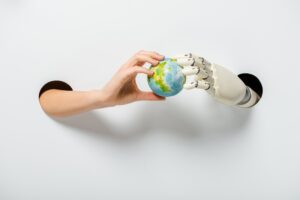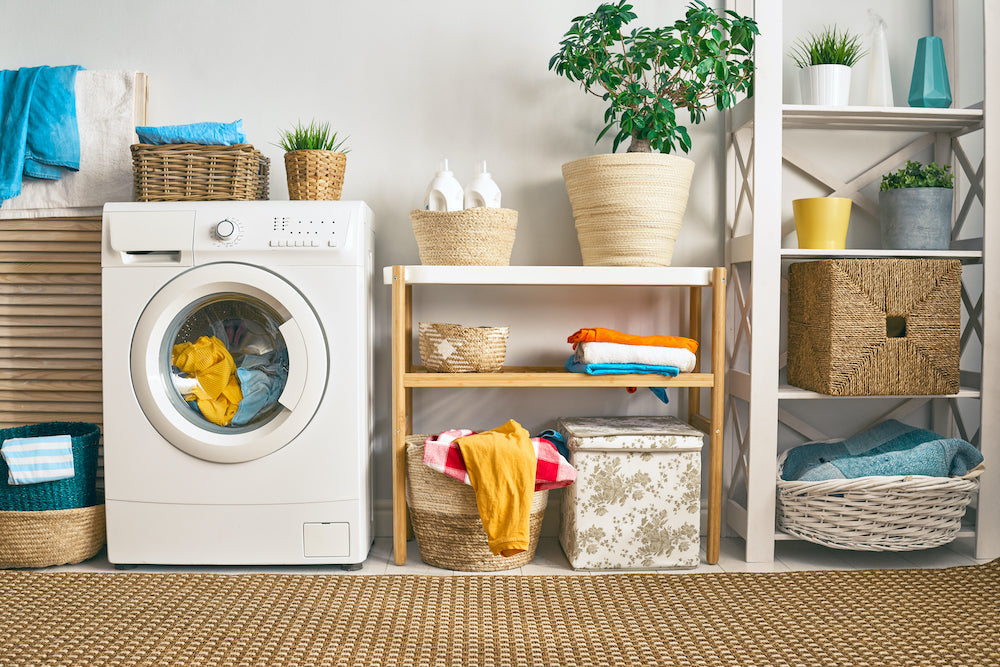Dirty Labsis a company that is revolutionizing the cleaning industry with its innovative approach to sustainable and safe cleaning. With a focus on natural ingredients and advanced scientific research, Dirty Labs is leading the charge in creating cleaning products that are effective, safe, and environmentally responsible.
The Impact of the Laundry Industry
The laundry industry significantly impacts the environment, from the energy and water used to wash clothes to the chemicals in laundry detergents and fabric softeners that can pollute the air and water.
Traditional cleaning products often rely on harsh chemicals and synthetic ingredients that can be harmful to both the environment and human health. Dirty Labs is committed to changing this paradigm by using only natural and sustainable, biodegradable, and environmentally friendly ingredients.
The Science Behind Dirty Labs
Dirty Labsis different from other cleaning product companies because it relies on the latest innovations in green chemistry to create new cleaning platforms that are inspired by how nature cleans itself. The company’s proprietary 5-in-1 enzyme-driven cleaning technology, called Phytolase®, was designed to deliver conventional levels of cleaning performance while achieving unprecedented levels of ingredient safety and sustainability.
Phytolase® is changing the game in how we clean our clothes. It actively fights stains, eliminates odors, softens clothes without the use of harsh chemicals, and brightens colors without the use of optical brighteners. This specialized enzyme is gentler on clothing and has demonstrated better color stability and reduced color bleeding in fabrics.
Dirty Labs’ Sustainable and Ethical Practices
Dirty Labs is dedicated to ethical and sustainable practices in every aspect of its business. The company uses only natural and biodegradable ingredientsthat are sourced responsibly, and all of its products are third-party tested for human and environmental safety. The EPA has also recognized Dirty Labs as a Safer Choice Partner of the Year, and its products are free of known carcinogens, toxins, and pollutants.
Dirty Labs’ commitment to sustainability extends beyond its products. The company’s packaging is made from recycled materials, and offers a refill program to reduce waste. Dirty Labs also partners with environmental organizations to promote sustainable practices and protect the planet.
Who Should Buy Dirty Labs Products?
Dirty Labs products are perfect for anyone who is looking for effective and safe cleaning productsthat are environmentally responsible. The company’s laundry detergents, fabric softeners, and stain removers are perfect for those who want to keep their clothes clean and fresh without using harsh chemicals or synthetic fragrances. Dirty Labs’ dishwashing detergents and all-purpose cleaners are ideal for those who want to keep their homes clean and free of harmful chemicals.
Final Thoughts
Dirty Labs is leading the way in sustainable and safe cleaning products. By using only natural and biodegradable ingredients, the company is creating effective, safe, and environmentally responsible products. Its commitment to ethical and sustainable practices is evident in every aspect of its business, from sourcing ingredients to packaging and promoting sustainable practices. If you’re looking for cleaning products that are effective, safe, and environmentally responsible, look no further than Dirty Labs.
Related topic:
Exploring the Environmental and Social Impacts of the Laundry Industry: Challenges and Solutions
The laundry industry provides an essential service for households and businesses but has significant environmental and social impacts. From water consumption and chemical pollution to worker safety and labor rights concerns, the laundry industry faces various challenges that must be addressed. In this blog post, we’ll explore some of the key environmental and social impacts of the laundry industry and discuss potential solutions to these challenges.
Environmental Impacts of the Laundry Industry
Water Consumption and Water Scarcity Laundry machines consume a significant amount of water, and in areas where water is scarce, this can be a problem. Some laundry processes, such as dyeing and finishing textiles, can also consume large amounts of water. To address this challenge, the laundry industry can invest in high-efficiency washing machines, implement water-saving technologies, and explore ways to recycle and reuse water.
Chemical Pollution and Waste Generation
Laundry detergents, fabric softeners, and other chemicals used in the laundry industry can harm the environment if they are not properly managed. These chemicals can contribute to water, air, and soil contamination. To reduce chemical pollution, the laundry industry can switch to environmentally friendly detergents that are biodegradable and free from harmful chemicals. Additionally, the industry can reduce waste by using refillable detergent containers, recycling used textiles, and avoiding single-use packaging.
Energy Consumption and Carbon Emissions
Laundry machines consume a significant amount of energy, which contributes to carbon emissions and climate change. Additionally, many laundry facilities require heating and cooling systems to maintain a comfortable working environment, which can consume significant energy.
The laundry industry can invest in renewable energy sources such as solar or wind power, use high-efficiency washing machines and dryers, and implement energy-saving technologies.
Microplastic Pollution
When synthetic fabrics (such as polyester and nylon) are washed, they release tiny plastic fibers called microplastics. These microplastics can end up in waterways and oceans, harming aquatic life and potentially entering the food chain. To address this challenge, the laundry industry can switch to natural fabrics such as organic cotton, linen, and hemp, which do not release microplastics.
Social Impacts of the Laundry Industry
Labor Rights Issues In some parts of the world, workers in the laundry industry may be subjected to poor working conditions, low pay, and other labor rights violations. This can be a problem for both workers and consumers who want to support ethical and sustainable businesses. The laundry industry can prioritize worker safety and well-being, provide fair wages and benefits, and promote ethical and sustainable practices throughout the supply chain.
Worker Health and Safety Concerns
Workers in the laundry industry can be exposed to various potential hazards, including chemical exposure, ergonomic hazards, and heat stress. Employers can provide adequate training, protective equipment, and ventilation systems for their workers to minimize the potential health risks associated with the laundry industry. Additionally, workers should be educated on safe work practices and encouraged to report any health concerns to their supervisors.
Solutions to Environmental and Social Challenges
To make the laundry industry more sustainable and environmentally friendly, there are several steps that can be taken, including:
- Using environmentally friendly detergents
- Conserving water and energy
- Reducing waste and using sustainable fabrics
- Investing in new technologies
- Educating consumers
Final Thoughts
The laundry industry plays an important role in society but has significant environmental and social impacts. The industry can move towards a more sustainable and ethical future by addressing challenges such as water consumption, chemical pollution, worker safety, and labor rights.
By adopting environmentally friendly practices, investing in new technologies, and prioritizing worker safety and well-being, the laundry industry can reduce its overall environmental impact and contribute to a healthier planet for future generations.
As consumers, we can also play a role by choosing environmentally friendly laundry products and reducing our overall consumption of clothing and textiles. Let’s work together to create a more sustainable and responsible laundry industry.










Reader Interactions